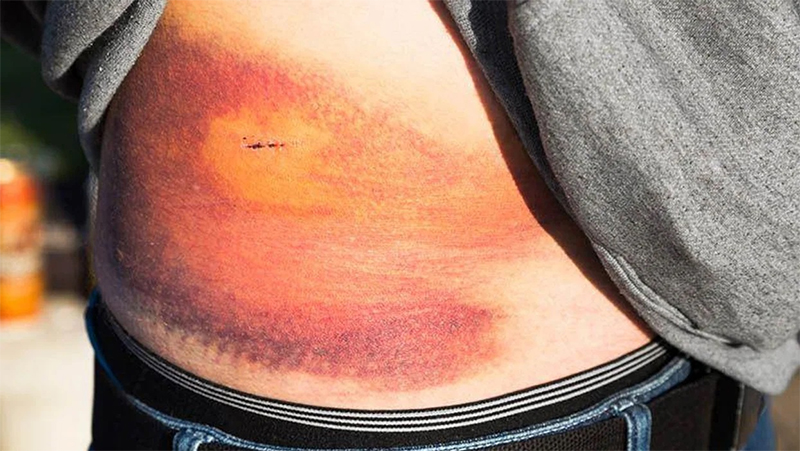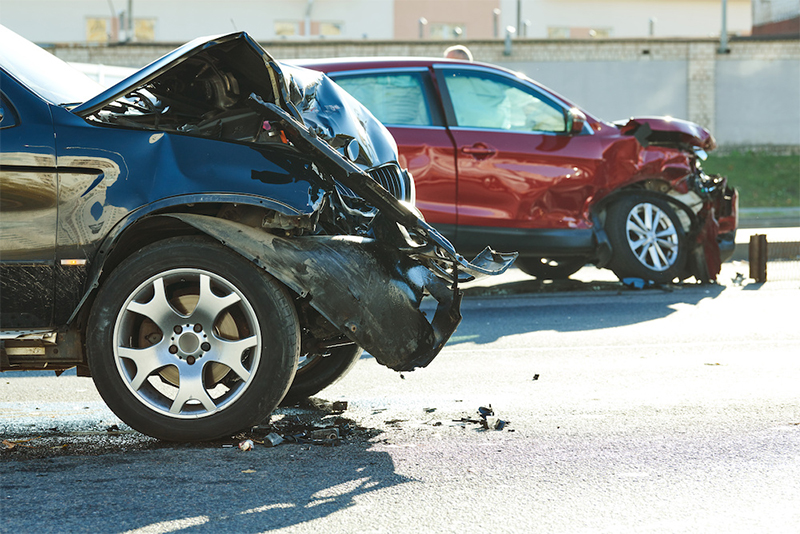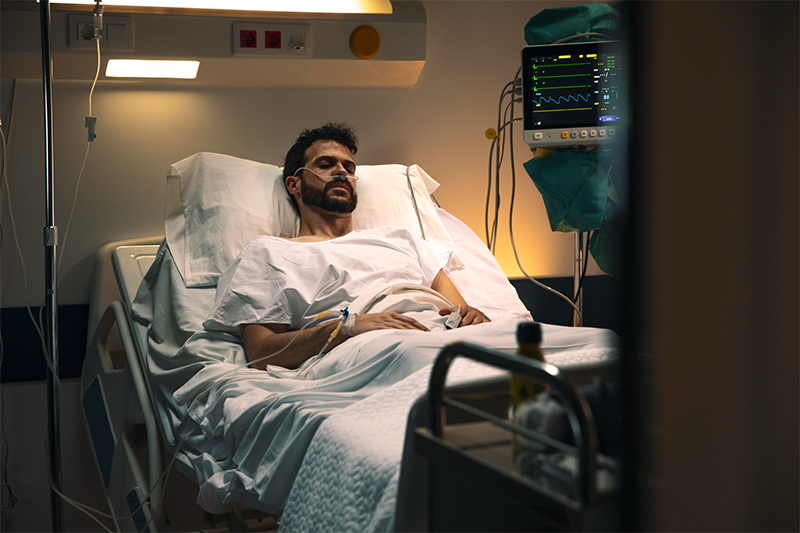Top Rated Albuquerque Internal Injuries Attorneys
Albuquerque Internal Injuries Lawyer
Find out why we are one of the best internal injury law firms in Albuquerque
Albuquerque Internal Injuries Attorney
Have You Suffered From an Internal Injury in Albuquerque?
If you’ve been injured and are facing medical bills and pain, you deserve justice. Goldberg & Loren can help you navigate the legal process and get the compensation you need to cover your expenses and move forward with your life. We are committed to getting you the best possible outcome for your internal injury case.
Call our Albuquerque internal injury lawyer at (505) 421-3698 today for a free consultation. Let us help you recover from your internal injury and get the justice you deserve.
What is an Internal Injury?
Internal injuries encompass any damage to the chest, abdominal, or cranial cavities. These injuries can be caused by a variety of factors, but often are caused by blunt force trauma or penetrating injuries. [1]
Injuries are the leading cause of death among people ages 1 to 44 in New Mexico. Each day an average of 5 people die from injuries, another 40 are hospitalized due to injuries, more than 700 are seen in emergency departments, and more than 2,000 visit other health care facilities for treatment of their injuries. [2]

What Causes Internal Injuries in Albuquerque?
Internal injuries are a serious concern that can result from a variety of different causes. These injuries occur when the body’s internal organs, tissues, or blood vessels are damaged or punctured.
- Blunt trauma: Injuries such as falls, motor vehicle accidents, and physical assaults can cause blunt trauma to internal organs, leading to internal bleeding or organ damage.
- Penetrating trauma: Stab or gunshot wounds can directly injure internal organs and cause internal bleeding or damage to vital structures.
- Crushing injuries: Accidents involving heavy objects or machinery can cause crushing injuries to internal organs, leading to tissue damage, internal bleeding, or organ rupture.
- Medical procedures: Complications from surgical procedures, medical interventions, or medical devices can lead to internal injuries such as organ perforation or bleeding.
- Falls: Falls from heights can cause internal injuries, particularly to the abdomen and chest regions.
- Toxic exposure: Ingestion or inhalation of poisonous substances or chemicals can cause internal organ damage and injury.
- Barotrauma: Sudden changes in air or water pressure, such as in diving or aviation accidents, can cause internal injuries, particularly to the lungs and ears.

Common Types of Internal Injuries
Internal injuries can vary widely in severity and can affect different organs and body systems. Some common include:
- Contusions: These are bruises or areas of damaged tissue caused by blunt force trauma, such as being struck by an object or experiencing a fall.
- Internal bleeding: This can occur as a result of trauma, such as a car accident or a fall, and may involve bleeding within the body cavities or into organs or tissues. [1]
- Internal organ injuries: Blunt trauma, penetrating injuries, or extreme forces can cause damage to internal organs such as the liver, spleen, kidneys, or lungs.
- Fractured bones: Severe impact or crushing injuries can also cause fractures to bones within the body, such as the ribs or the pelvis.
- Muscle tears or strains: Forceful impacts or overexertion can lead to damage within the muscles, resulting in strains or tears.
- Pneumothorax: This occurs when air accumulates in the space between the lung and the chest wall, leading to lung collapse, often caused by trauma or medical procedures.
- Ruptured blood vessels: Trauma or sudden, excessive physical stress can lead to the rupture of blood vessels, causing internal bleeding.
- Traumatic brain injury: Severe blows to the head or violent shaking can cause damage to the brain, leading to bleeding, swelling, or structural injuries within the skull.
Table of Contents
-
Albuquerque Internal Injuries Attorney
-
What is an Internal Injury?
-
What Causes Internal Injuries in Albuquerque?
-
Common Types of Internal Injuries
-
Symptoms of Internal Injuries
-
Treatments for Internal Injuries
-
Compensation for an Albuquerque Internal Injury
-
Get a Free Consultation From An Albuquerque Internal Injury Lawyer Today
Symptoms of Internal Injuries
Symptoms of internal injuries can be varied and may depend on the specific organ or body system affected. Some common include:
- Pain or tenderness in the abdomen, chest, or back
- Swelling or bruising in the affected area
- Nausea and vomiting
- Dizziness or lightheadedness
- Weakness or fainting
- Shortness of breath or difficulty breathing
- Rapid or weak pulse
- Low blood pressure
- Abdominal distension or rigidity
- Bleeding from the nose, mouth, or other orifices
- Chills or fever
- Pale or clammy skin
- Confusion or disorientation
- Loss of consciousness
- Decreased urine output
- Inability to move or use a specific body part
- Severe fatigue or weakness
- Signs of shock, such as rapid heartbeat, rapid breathing, and pale or cool skin
- Bruising around the area of impact
- Signs of head trauma, such as headache, altered mental status, vision or balance problems, or changes in speech or coordination [1]

Treatments for Internal Injuries
The treatment for internal injuries depends on the specific type and severity of the injury. However, some general approaches to managing internal injuries may include:
- Immediate medical attention: For severe or life-threatening internal injuries, seek emergency medical care without delay. This may involve calling emergency medical services or going to the nearest hospital or trauma center.
- Stabilization: Patients with internal injuries may require stabilization to prevent further damage. This might involve immobilization if there is suspected spinal cord trauma, or maintaining adequate breathing and circulation.
- Diagnostic testing: Medical professionals will likely conduct various imaging tests such as X-rays, CT scans, ultrasound, or MRI scans to assess the extent of the internal injuries and identify the specific areas affected.
- Surgical intervention: In some cases, surgery may be necessary to repair damaged organs, stop internal bleeding, or address other trauma-related complications.
- Pain management: Pain medication and other interventions may be prescribed to alleviate discomfort and make the patient more comfortable during the recovery process.
- Monitoring and supportive care: Patients with internal injuries may require close monitoring to assess their vital signs, oxygen levels, and other measures. Additional supportive care such as intravenous fluids or blood transfusions may be necessary to stabilize the individual.
- Rehabilitation: Following treatment for internal injuries, patients may need physical therapy or other forms of rehabilitation to regain strength, function, and mobility.
- Psychological support: Coping with the effects of internal injuries can be challenging and may require psychological support to address the emotional and mental impact of the trauma.
Compensation for an Albuquerque Internal Injury
The compensation available for an internal injury can vary based on several factors, including the severity of the injury, the circumstances leading to the injury, and the applicable laws and regulations. Some types of compensation that individuals may seek for an internal injury include:
- Medical Expenses: Compensation for medical expenses related to the treatment of internal injuries, including hospitalization, surgeries, medication, rehabilitation, and ongoing medical care.
- Lost Income: Reimbursement for wages lost due to time away from work during recovery and potential future earning capacity if the injury results in long-term or permanent disability.
- Pain and Suffering: Compensation for physical discomfort, emotional distress, and diminished quality of life resulting from the internal injury.
- Disability Benefits: If the internal injury leads to long-term or permanent disability, the injured person may be entitled to disability benefits to support ongoing living expenses and medical care.
- Rehabilitation Costs: Compensation for necessary rehabilitation services, such as physical therapy, occupational therapy, and other forms of care aimed at restoring function and mobility.
- Punitive Damages: In cases where the injury resulted from willful misconduct, gross negligence, or malicious intent, punitive damages may be awarded as a form of punishment and deterrent to the responsible party.
- Loss of Enjoyment of Life: Compensation for the loss of enjoyment of life due to the limitations imposed by the internal injury, such as the inability to engage in hobbies, recreational activities, or fulfill personal interests.
- Legal Fees and Costs: Reimbursement for attorney fees, court costs, and other legal expenses incurred in pursuing compensation for the internal injury.

Get a Free Consultation From An Albuquerque Internal Injury Lawyer Today
Goldberg & Loren has a team of skilled personal injury attorneys in Albuquerque committed to helping clients navigate the legal process with ease.
Our goal is to secure the maximum compensation possible for their clients, including medical expenses, lost wages, pain and suffering, and other damages.
When it comes to seeking justice for your internal injury, having the right legal representation can make all the difference. Contact Goldberg & Loren today to get a free consultation.
Sources:
[1] internal injury. (n.d.). TheFreeDictionary.com. https://medical-dictionary.thefreedictionary.com/internal+injury
[2] A. (2022, August 27). What to Know About Post-Accident Internal Injuries. Chiropractor College Park. https://www.chiropractorcollegepark.com/what-to-know-about-post-accident-internal-injuries/
Goldberg & Loren Personal Injury Attorneys
4801 Lang Ave NE UNIT 110,
Albuquerque, NM 87109
(505) 421-3698

We fight hard for our clients who have suffered internal injuries in Albuquerque. Our personal injury lawyers fight for maximum compensation.
George Goldberg
Senior Partner
Have Questions About Your Case? Call Us Today: